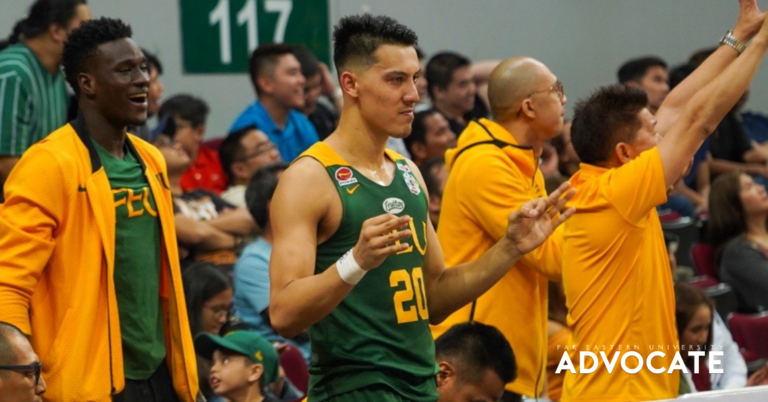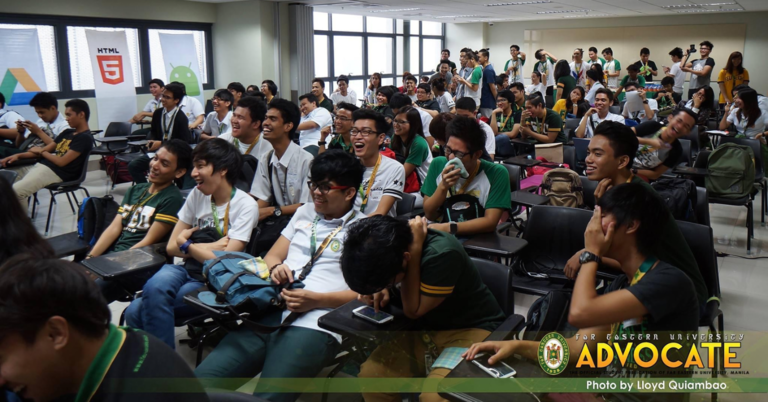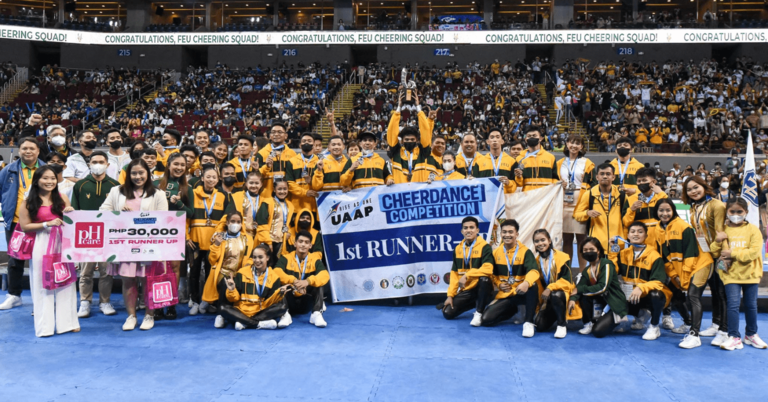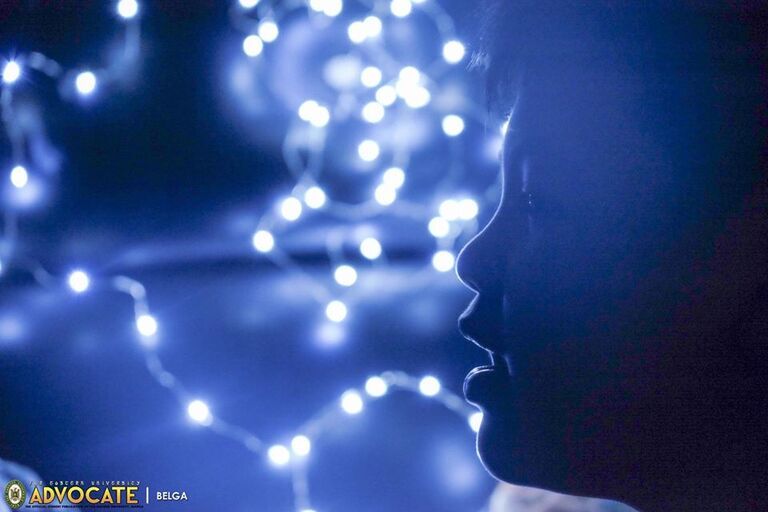
FEU tuluyang nilaglag ang UP, Tams pasok sa semis
- August 25, 2022 01:21
FEU Advocate
November 15, 2021 04:23
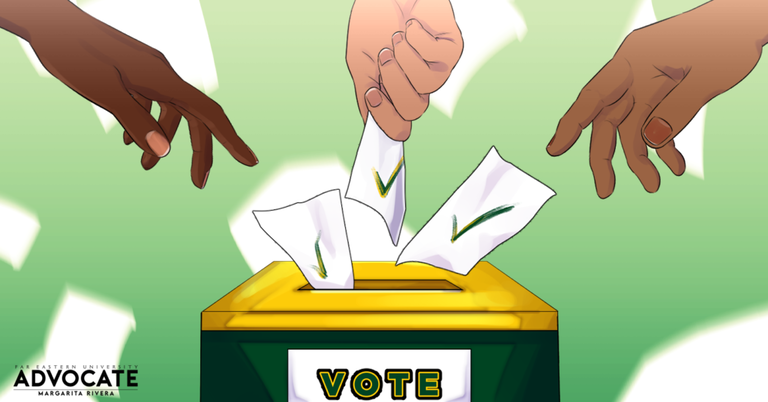
Peeling back decades of the Philippine political scene reveal rosters of celebrities who have filed elective candidacies in a bid for public service. As stardom and political power increasingly become an expected pairing in the country, a concern emerges: are these celebrities banking on their political competence, or riding on the coattails of their prominence?
Under banners of representation for the unheeded and the pursuit of better conditions among various marginalized groups or minorities, the din of these stars’ appeals, amplified by their influence, make for a formidable combination in the political arena.
In the recently concluded period for filing Certificates of Candidacy held from October 1 to 8 by the Commission on Elections (COMELEC) alone, online news site Rappler recorded 28 show business personalities running for local posts, and eight gunning for national seats.
On the Path of Progression
Out of a culture that glorifies overcoming challenges, came a nation that supported the progression of celebrities turning into politicians, to the point where it became a common trope for Filipinos to predict certain personalities’ intent to vie for government office.
However, the fact remains: while stars— powered by the established path into governance— may aspire to make an impact in communities, the boost offered by their popularity is what strengthens their stand in the elections regardless of their credentials.
The first seat claimed by a media mainstay in the Malacañang transpired during the Fourth Congress of the Philippines (1958-1961) as Far Eastern University (FEU)-grown actor Rogelio dela Rosa was elected senator. This was followed by the election of another FEU alumnus, senator Edgar Ilarde in the Seventh Congress (1970-1973) before being halted by the then-existing Martial Law.
It was later on, with the institution of action star Joseph Estrada in the Eighth Congress (1987-1992), that celebrities rolled to power in the national office. For the duration of the Ninth (1992-1995) and Tenth Congress (1995-1998), show host Vicente Sotto III, actor Ramon Revilla, and basketball player Freddie Webb each maintained their slots. Estrada would soon claim the highest seat of governance as the 11th Congress’ (1998-2001) president.
As media presence appeared to hold a monumental role in the outcome of the elections, a dilemma presents itself. What becomes of the line that pits merit and qualifications against popularity?
Celebrity Power and Politics
Celebrities who find themselves in the realm of politics have an edge that is wanted by most. With election season drawing closer, Filipinos have witnessed all kinds of people come forward in an attempt to run for office; believing they have what it takes to be an elected public official. When celebrities attempt to partake in this, the lines may become even blurrier when showbiz and politics meet.
“As a student and a Filipino citizen, it actually frustrates me to know that most Filipinos will choose a celebrity dancing to God knows what song over a qualified and competent candidate,” says Cyrra Rey–Anne Mira, a 4th Year BA Political Science student. “Others are stubborn to listen and open their minds to change and information,” she shares.
Many people believe that celebrities should stay out of the political spotlight since artists should focus on their own craft and leave lawmaking to experienced public servants. This may give off an impression of celebrities not being well-informed in regards to government matters or what they can possibly contribute to society if granted this position when in fact, a certain number of celebrities are enthusiastic about political issues and may want to see necessary reforms implemented.
In some cases, there may be celebrities who rose to fame with their background of coming from rags to riches so they may understand what it is like to be a regular citizen and should be able to speak for them.
Others argue that celebrity clout can be harmful. Celebrity culture is prevalent in the age of social media and a number of young admirers look up to their idols, making these renowned personalities potentially too powerful. It is no doubt that celebrities have the capacity to persuade their audience to adopt a particular political viewpoint.
Luther Lumagui, a 4th Year BA Language and Literature Studies student, believes that celebrities who may run for a political position are not fully aware of the huge responsibility that this role demands. “I believe that anyone, regardless of their educational background, has the right to run for office. However, as history demonstrates, Filipino celebrities who run for office always end up as trapos (corrupt politicians),” he says.
Actors or actresses who play heroic parts, in some cases, have the ability to persuade the public. Since public officials and leaders are sometimes perceived as "saviors" by the masses, an endorser's "hero image" might readily be identified with the candidate. An example of this would be Robin Padilla, a well-known action film star in Philippine cinema, showing his support for President Rodrigo Duterte during the 2016 presidential elections.
Casting A Smart Vote
For socially and politically conscious individuals, celebrity endorsements are a reason to criticize the candidate. The danger of reducing the campaigns to mere popularity contests is a prominent argument against the process.
“I do not agree with celebrities that dabble in politics, especially ‘yung mga wala naman talagang knowledge sa batas at hindi nag-aral ng law (especially those who don’t have the knowledge and never studied law). Being a leader and a public servant is a huge responsibility, thus, requires enough knowledge and experience to provide the needs of the State”, says Arlina Yhelena Ablir, a 4th Year BS Architecture student.
“Since hindi sila knowledgeable about sa laws and good governance, iisipin nila na kasikatan na lang ang batayan para maging isang politiko at dahil mas kilala ang mga celebrities na ito ng mga tao, nawawalan ng papel ang ibang karapat dapat sa posisyon (Since they are not knowledgeable about laws and good governance, they would think that popularity is all it takes to become a politician. Since celebrities are more well-known, those who deserve a chance to own a government position lose this),” she says.
These celebrities are not inherently bad candidates for government; rather, their popularity and financial resources provide them a significant advantage during campaigns. This money, combined with their name recognition, increases their chances of winning any position they run for.
People believe that a fresh perspective from outside the political system will be useful and may bring something new to the table. However, due to their lack of expertise, these celebrities may find it difficult to make new and better reforms for the public.
When asked about his views on celebrities dabbling in the realm of politics, Simon Joshua Gravador, a 2nd Year BA Communication student, shares “perhaps they don't know the responsibility that comes with it or more accurately, they cannot bear to understand the gravity of what being a public servant means.” When politics and showbiz come together during election season, they create a powerful alliance of influence that is frequently undetectable to the naive, passive eye.
It is no doubt that politics and showbiz are linked together and celebrities find themselves drifting between the two spheres. If celebrities are well-informed about the topics they are discussing, they can encourage their followers to make informed judgments rather than imposing their own opinions on them. This may enhance political participation, interest, and engagement among both new and old voters — something that politicians aim towards but frequently fail to achieve.
On a daily basis, the public is subjected to a variety of political influences from celebrities, social media, friends, and even family members. This intricate web of social connections should be strengthened by research and credible sources on all political candidates— a simple yet weighty element in the Filipinos’ collective decision on what gets written in history books.
- Angelic Mizpah Chaste C. Bulanhagui and Ma. Isabela D. Manacsa
(Illustration by Maria Margarita Corazon P. Rivera/ FEU Advocate)
References:
Rappler. (2021, October 5). LIST: These celebrities are seeking elective posts in 2022. https://www.rappler.com/entertainment/celebrities/list-celebrities-seeking-posts-2022
Maniago, E. R. (2007, March). Communication Variables Favoring Celebrity Candidates in Becoming Politicians: A Case Study of the 1998 and 2004 and Elections in the Philippines. https://www.jstage.jst.go.jp/article/tak/44/4/44_KJ00004552202/_pdf
Senate of the Philippines. (n.d.). Senators Profile - Rogelio de la Rosa. http://legacy.senate.gov.ph/senators/former_senators/rogelio_dela_rosa.htm
Senate of the Philippines. (n.d.). Senators Profile - Edgar U. Ilarde. http://legacy.senate.gov.ph/senators/former_senators/edgar_%20ilarde.htm




